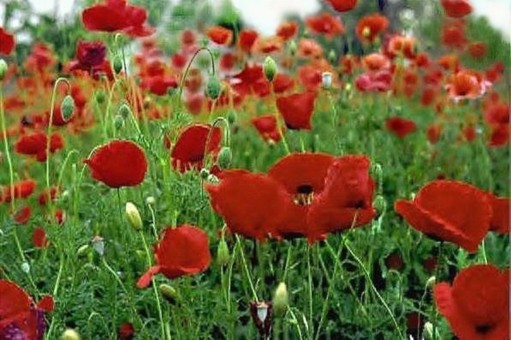"SEASON of mists and mellow fruitfulness!
Close bosom-friend of the maturing sun;"

These are the opening lines of John Keats's famous poem 'To Autumn', in praise of the colours, smells and sights of this crossover season of the year. What he doesn't mention, of course, are the cold, wind, rain and often frost that often accompany this season! For Keats Autumn is a rich tapestry that regales the senses and heightens the emotions.
"As Summer into Autumn slips
And yet we sooner say
"The Summer" than "the Autumn," lest
We turn the sun away,"
.jpg)
The first verse of Emily Dickinson's musing on Autumn neatly captures the feeling that we have a tendency to lengthen Summer and keep Autumn at bay for as long as we can, not so much because of Autumn itself but rather of what it brings in its wake. And so last few days of Summer spill over into the first few days of Autumn. But as the leaves begin to fall from the trees and the winds begin to blow, we grudgingly accept the coming of Autumn and comfort ourselves with the thought that there may well be fine days still to come before the onset of Winter.
“Laden Autumn here I stand Worn of heart, and weak of hand: Nought but rest seems good to me, Speak the word that sets me free.”
2.jpg)
So speaks William Morris of Autumn in the Autumn of his own life. And of course this season of the year has often be identified with the penultimate phase of human life, in the antechamber, so to speak, of the closing years of man's allotted term. Autumn is laden with ripened fruit, but it is also the season of decomposition. It puts the icing on Summer but it also opens the door to Winter. Autumn celebrates the fruits of Summer, but it also paves the way for the desolation of Winter. In short, it looks both ways, it is Janus, the God that faces both forward and backward.
.jpg)
.jpg)

.jpg)
No comments:
Post a Comment